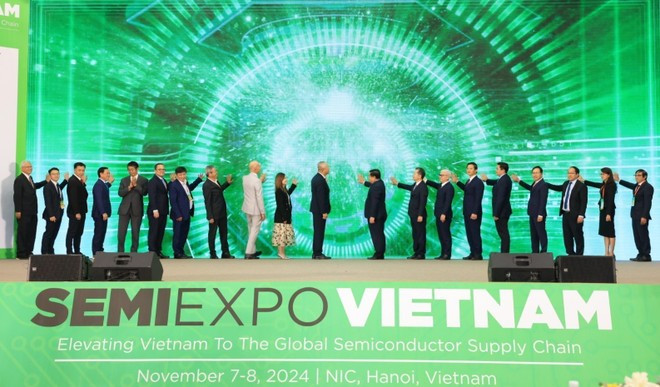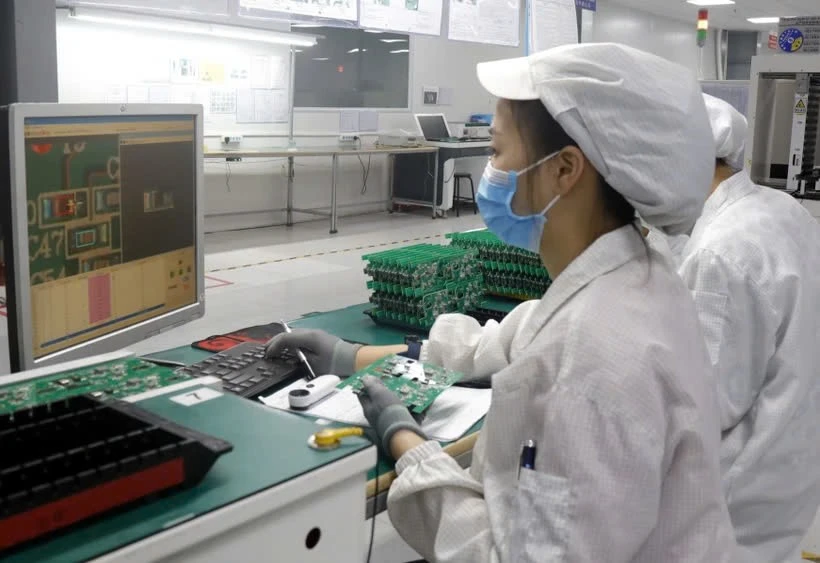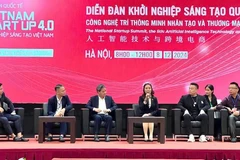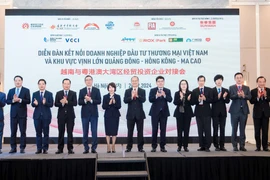Hanoi (VNA) - Russia’s Sputnik news agency stated that Vietnam is a rising star in the global semiconductor industry, while Channel NewsAsia (CNA) of Singapore and Chosun Ilbo of the Republic of Korea (RoK) also noted that Vietnam is attracting increasing attention from major corporations in the sector.
Amid the increasingly complex global political and economic landscape, Vietnam is emerging as a potential semiconductor hub. It has become an attractive destination for international semiconductor manufacturers such as Samsung, Intel, and LG to establish production and research facilities.
Recently, Vietnam has opened its doors to major tech corporations like Nvidia, Apple, SpaceX, Qorvo, Marvell, and Intel. These behemoths of the industry are exploring investment projects in the semiconductor and AI sectors in Vietnam, aiming to develop a local ecosystem to support these cutting edge sectors.
Several global semiconductor companies have established a presence in Vietnam to design chips, as well as for assembly, testing, and packaging. Chosun Ilbo said after Samsung Display built a new OLED factory worth 2.4 trillion KRW (1.67 billion USD) in Vietnam. Samsung Electronics' partner companies were also investing in the country. Signetics, a RoK semiconductor packaging company, plans to invest 100 million USD in a production facility in Vinh Phuc province. Infineon, the world's largest automotive semiconductor firm based in Germany, has also increased its investment in Vietnam since 2023.
Along with strong support policies from the government, Vietnam's position in the global semiconductor industry is gradually improving.
According to Sputnik, experts believe that the presence of major FDI technology companies in Vietnam has further strengthened the country's position in the global supply chain.
Linda Tan, President of Semiconductor Equipment and Materials International (SEMI) Southeast Asia spoke at a seminar entitled "Semiconductor Industry Strategy: A New Driving Force for Vietnam and Hanoi" in Hanoi on December 3. She said Vietnam is a "rising star" in the global semiconductor industry, noting that in 2024, the sector’s revenue is expected to reach 18.23 billion USD, representing a year-on-year growth of 11.48%.
She also praised the specific and ambitious strategies set by the Vietnamese Government, which include three phases of development up to 2050.
Earlier, CNA said the government has bold visions to develop a full-scale semiconductor ecosystem over the next 25 years, aiming to train at least 4,000 engineers every year.

Vietnam may be trailing behind some of its regional neighbours like Malaysia in developing its semiconductor industry, but the Southeast Asian nation has been drawing its fair share of attention from industry players.
Prominent semiconductor chip designers such as Intel and Amkor have set up shop there, drawn to its young population and potential talent pool.
Vietnam is “rapidly emerging as a semiconductor powerhouse” in Southeast Asia and is in a good position to contribute at every stage of the value chain, said regional industry association SEMI Southeast Asia’s Kay Chai Ang.
“The growth is driven by strategic investment and a long-term vision from the Vietnamese government to build a comprehensive semiconductor ecosystem by 2050 from integrated circuit design, assembly test and packaging, said Ang, who is chairman of the organisation’s Regional Advisory Board.
A recent report from Singapore’s ISEAS-Yusof Ishak Institute indicated that Vietnam is facing an opportunity to transition its economic growth model from labor-intensive industries to high-tech sectors like semiconductors, which aligns with the global supply chain restructuring trend.
Located at the heart of Southeast Asia, Vietnam is well-positioned to connect with major markets in the region, such as Singapore, Malaysia, Thailand, and Indonesia, making it an ideal location for establishing semiconductor manufacturing and distribution hubs for the region.
Additionally, with its geographical proximity to China and India—two large markets with high demand for technology products—Vietnam can leverage this advantage to expand exports and attract investment from companies seeking to access these markets./.




























